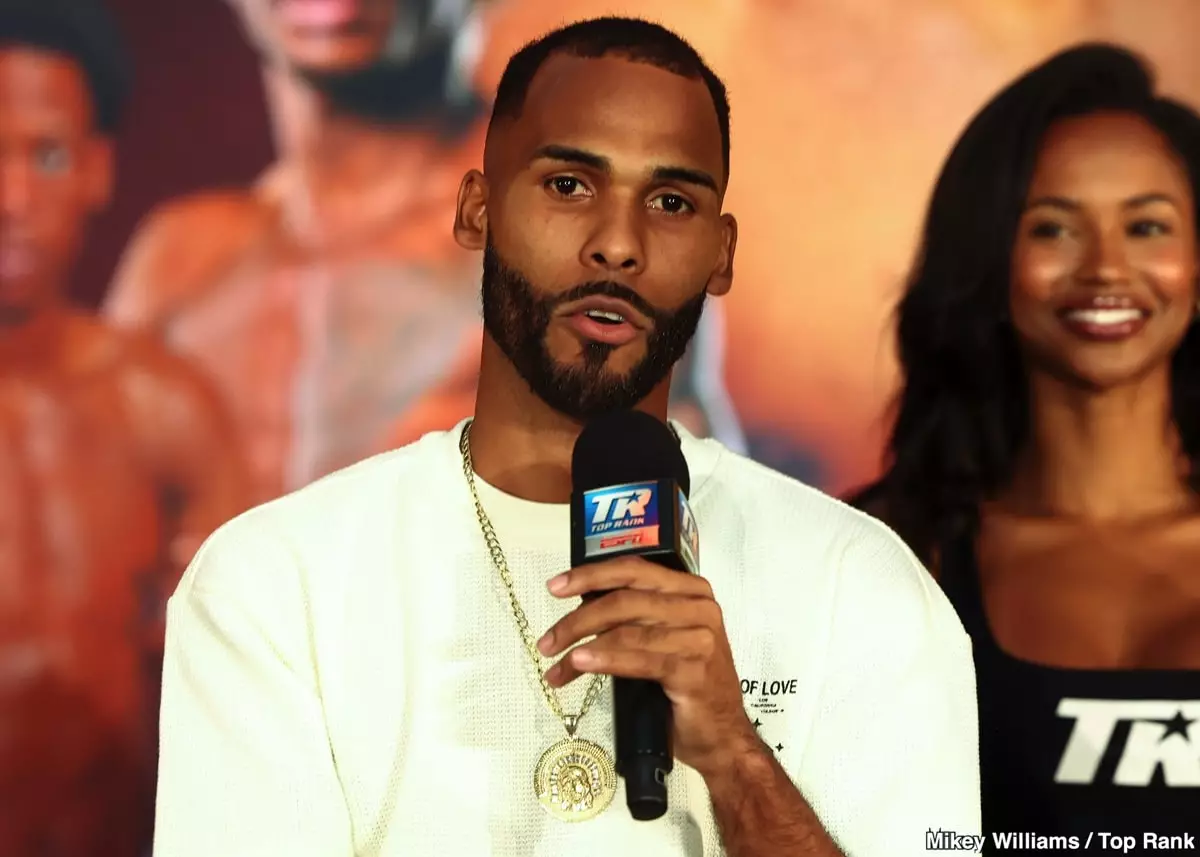In the high-stakes world of professional boxing, the weight is more than just a number; it is a determinant of success, strategy, and sometimes, survival. Former WBO lightweight champion Keyshawn Davis recently found himself embroiled in controversy after failing to make weight ahead of his fight against Edwin De Los Santos. By coming in over four pounds heavy, Davis not only jeopardized his own chances but also cast a dark shadow over De Los Santos’ aspirations for glory. As the two fighters prepared for what was expected to be a climactic battle, Davis’s failure to adhere to the weight regulations raised critical questions about professionalism, accountability, and the ethics of combat sports.
For aspiring boxers, the ability to consistently make weight is a test of discipline and commitment. The gym, diet, and lifestyle choices all culminate in that pivotal moment on the scale. Davis, having missed the mark by a significant margin, undermined the integrity of the matchup. Moreover, the ramifications were felt beyond just the ring; they echoed through the careers and opportunities of both fighters involved.
The Consequences of Oversight
As news broke of the weight incident, it became painfully clear that both Davis and De Los Santos would pay a high price. De Los Santos, eager to prove himself and seize the opportunity to fight for the WBO title, found himself stymied by his opponent’s negligence. In a dramatic twist, he later revealed his readiness to fight regardless of the circumstances, expressing his desire to chase the championship belt. This determination, however admirable, is a reflection of the culture in boxing that often romanticizes the warrior spirit, sometimes at the expense of fighters’ safety.
The immediate fallout was substantial. De Los Santos’s promoter, Sampson Lewkowicz, made the contentious decision to halt the fight, prioritizing safety over profit. “Sometimes a warrior doesn’t understand that his life could be on the line,” Lewkowicz emphasized. This decision spotlighted the harsh realities of the sport. An over-weight Davis would have likely had an insurmountable weight advantage on fight night, potentially resulting in a dangerous and unbalanced contest. Lewkowicz’s intervention raised an essential issue in boxing: the balance between a fighter’s ambition and their safety. It is pivotal that promoters and managers prioritize their boxers’ safety over financial incentives—a message that is often lost in the pursuit of glory.
The Promotion Dilemma: Navigating Future Paths
In the aftermath of the fight’s cancellation, Edwin De Los Santos found himself at a crossroads. Following his split with Lewkowicz, he faced the daunting challenge of finding a new promoter who could effectively advocate for his career. With a record of 16 wins and only 2 losses, a promising future still lies ahead for De Los Santos. However, the burden of inactivity looms ominously, especially after more than a year without a fight since his last encounter with boxing star Shakur Stevenson.
The complexities of boxing promotion mean that not just any manager or promoter will suffice. De Los Santos’s recent remarks about seeking someone who can navigate his career strategically indicate a recognition of the importance of effective management beyond the ring. This evolution in a fighter’s journey is increasingly critical in a sport where the right connections can spell the difference between fading away in obscurity or claiming the spotlight.
The Long Shadows of Weight Issues
Reflecting on the broader implications of the Davis-Dos Santos saga, we must acknowledge that weight issues in boxing carry long-lasting effects. The incident serves as a vital lesson for fighters about the importance of championing their responsibilities. It also serves as a reminder for the boxing community to advocate for stronger regulations that ensure fairness, safety, and integrity in competition. With the stakes so high, it is imperative that all combatants enter the ring on equal footing.
As fighters like De Los Santos navigate their careers in the aftermath of such controversies, the hope is that this situation will usher in a renewed commitment to professionalism and safety in boxing—a sport that, despite its risks, holds the extraordinary potential for personal redemption and triumph. The fallout from this event leaves plenty to ponder about the future of fighters like De Los Santos, and how they will continue to chase their dreams in an unforgiving landscape.

